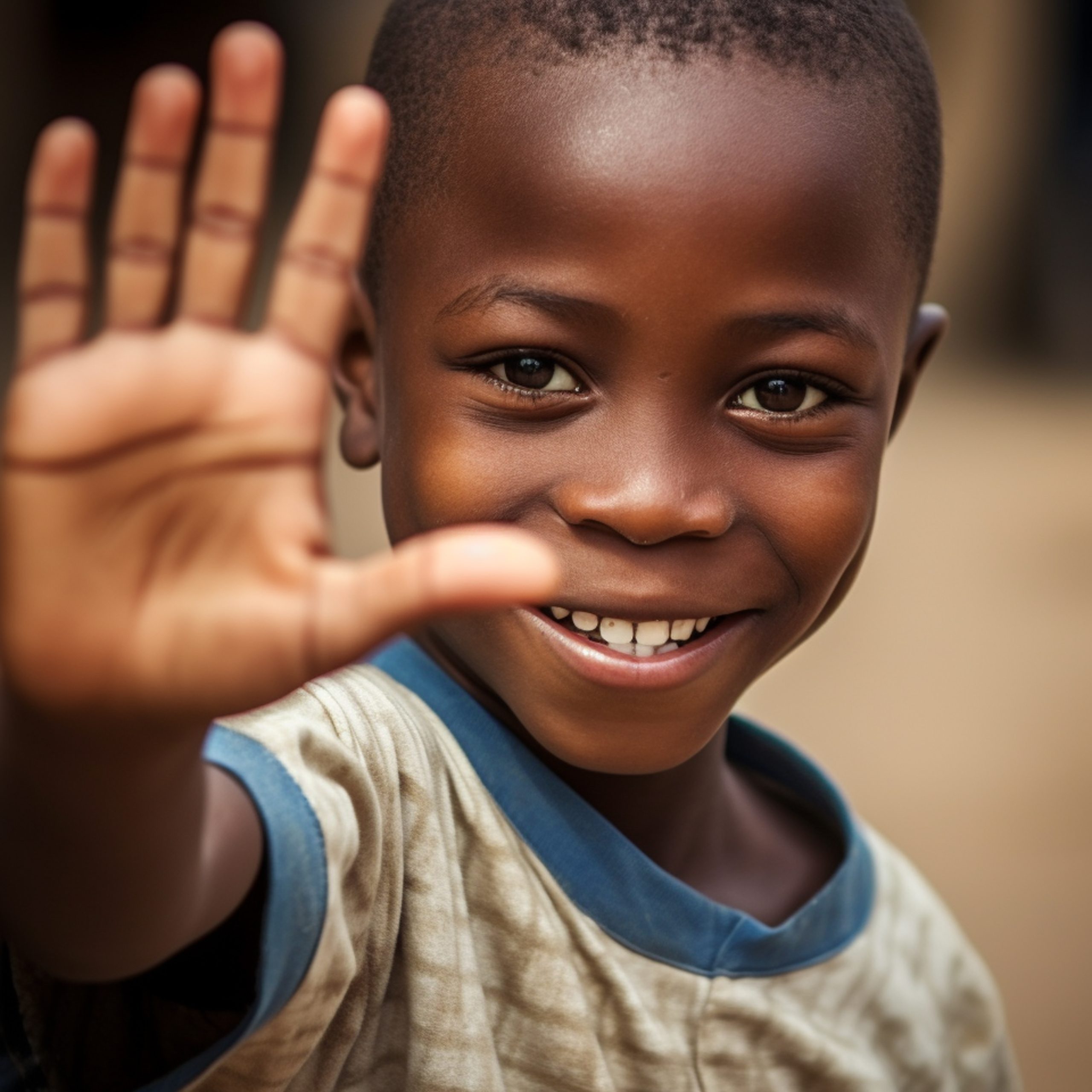UNCOVER THE PLIGHT AND REALITIES OF THE WIDOWS STRUGGLES IN THE DRC
By Reagan Baseya Mbungu updated on July 17, 2024
The lives of widows after the loss of their spouses are not always as peaceful as we might think. Indeed, these women, who have lost their partners that served as shields against society, often become prey to an environment primarily focused on the assets or possessions of the deceased. They endure deprivation, mistreatment, and extreme widowhood rituals. In addition to the pain caused by the husband’s passing, they have to deal with tortures and bad experiences that cause great suffering, by their in-laws, with barely any assistance to help them rise above their struggles in their lifetime not even their own family that rarely consider them as a daughter or even a sister from the moment they get married.
Exclusion and Sinking into Injustices and Challenges
There are estimated to be over 258 million widows worldwide, with over 115 million living in extreme poverty (source). In DRC, widowed women face daily struggles of extreme poverty, violence, homelessness, and social discrimination. Widows and their children are often deprived of all rights, belonging to the in-laws, or being rejected and ostracized after their husband’s death. Deprived of their income, they are left destitute and unable to feed their children, leading some to beg or even resort to prostitution to survive.
According to the UN, many widows in traditional societies were denied inheritance rights and land rights or have limited rights under religious or customary law. Without inheritance rights, including the right to inherit from their own family, widows fall into financial insecurity and become completely dependent on the charity of their husband’s family, reflecting the state of our country back then and sadly till today in various regions despite progress made in different fields as we see them weary of their sad fate after being completely abandoned and dispossessed of their assets and barely able to make ends meet.
As we know, every widow deserves three fundamental rights: the right to use the deceased husband’s name if she chooses not to remarry, the right to inherit from him on the same terms as his parents, siblings, the marital home, or adjoining land. However, this is not always the case in Congolese society, often reinforced by customs or ancestral traditions that blatantly disregard these rights.
Accused of all wrongs by their in-laws after the death of their spouse, whether legitimate or not, widows often lose everything. They endure hardship and are typically evicted from their homes or, for the luckier ones, stripped of all possessions (money, cars, land, businesses…), retaining only their marital home. Stripped of their rights due to the absence of a will from the deceased (which is not always respected if there is one) or lack of education on succession matters in our society, or entrenched traditional beliefs that normalize the complete disinheritance of widows. Additionally, our justice system does not always ensure financial security for these women and their children.
Widowhood rituals: a difficult path for widows in traditional society
For many years, widows, especially in remote areas where traditional mentalities predominate, have been deprived of their inheritance and land rights, or have had only limited access to these rights under rather peculiar religious or customary laws. This deprivation forced them to undergo cruel widowhood rites, devoid of any compassion.
This phenomenon has persisted due to a lack of knowledge of women’s rights, limited access to justice, illiteracy, stereotypes, and patriarchy, all of which hamper effective protection.
Widows were subject to a series of rites and traditions that had to be respected not to transgress social norms. These norms varied according to whether they were urban or rural, or according to the status of the deceased.
Mistreatment begins as soon as the deceased dies, and the rites take place before or after burial. Widows are stigmatized and subjected to tests to prove their innocence in the death of their spouse. Then, they must weep at set times, adopt a sad attitude, wear the same clothes for several days, and live in seclusion for months, observing various prohibitions such as avoiding greeting people and speaking only minimally.
They may only express themself in whispers and may not greet anyone by extending their hand or staring at them. They must refrain from any domestic, sexual, or agricultural activity, as widowhood has a rigorous traditional funeral symbolism, especially for women.
In other parts of the country, women were deprived of speech for longer periods, had their hair cut off completely by their sisters-in-law as a sign that they no longer have anyone to be beautiful for, because hair is a symbol of pride and beauty for Congolese women, and had to undergo a walk of shame naked or barely clothed.
The widowhood period could last several months and concludes with ceremonies designed to help them rebirth to a potential life with her family, including bathing after authorization from the elders in her in-laws. Some consider that these rituals purify the widow of all attachment to her deceased husband, and her family of the stains of death, while bringing serenity and harmony on the risk of a curse.
Now considered pure again in the eyes of society, it is either forbidden for remarriage or imposed on remarriage to a brother or cousin of the deceased, a practice that widows have long found hard to break because it was the norm but also prevented them from asserting their freedom of choice, on pain of death sentence as punishment.
This horrible imposition was often incorporated to prevent the wife from moving away and completely changing her life, to tarnish the memory of the deceased, or so that the deceased’s children would not be raised with an education other than that the one administered by the deceased father.
Even if the road was long, at some point the vicious cycle had to be broken because for a bereaved man, he was only obliged to bury his wife without further constraint, whereas widows were often subjected to degrading treatment. Having recognized that these atrocities can be a real ordeal, sometimes leaving physical and psychological after-effects, and being better knowledge equipped, they have been able to escape from these long-endured atrocities.
Today, widows find themselves at the crossroads of tradition and modernity, influenced by urbanization, cultural diversity, education, modern technologies, and socio-political and economic transformations. They feel that their dignity has long been violated and have used their rights to get relief from it, but women living in the remotest corners of the country unfortunately continue to suffer some of that kind of abuse from time to time.
But even if the question of rites has diminished, the one on inheritance remains a fundamental problem, reinforced by a lack of judicial support, with companions failing to draw up a will to protect their wives and children, thus constituting a scourge for those who are left at the mercy of their in-laws.
Family Code approach: Widows protection and persistent challenges
Before the 2000s, women, indeed, lived in a climate where traditions prevailed, relegating them to the status of objects of procreation with no right to inheritance. Since then, the Family Code has granted rights to widows over the primacy of custom and tradition, which had long hindered their application.
The Family Code, promulgated on August 1, 1987, and amended by Law n°16/008 of July 15, 2016, establishes rules to protect women who have lived in a matrimonial union. This code stipulates that in the event of death, 50 percent of a deceased’s properties be given to his children, 30 percent to his widow and 20 to his parents. But these provisions are regularly violated by families for lack of a judicial system capable of ensuring traceability and maintaining this procedure.
Despite this legal regulation, many women have fought to recover the deceased’s property, not only for themselves but also to ensure a future for their orphaned children. Unfortunately, these battles were often lost in advance, leaving widows at the mercy of hostile in-laws.
However, those who do not end up in a matrimonial union cannot even hope to benefit from the protection of the law when their de facto spouse dies, no matter how many years they have spent by their side. Despite regulations in place for almost two decades, little progress has been made to improve their situation and their only solution might be a will from the deceased, a complicated matter in a country where the Congolese rarely resort to wills.
Educated to be mothers and nothing more, many have accepted remarriage to ensure the safety of their children, even if these unions were often a nightmare.
In the face of these challenges, s0cial reform organisations strive to inform and assist widows so that they can regain their rights and dignity. But it is hard to provide for so many women with the scarce means at hand.
Nevertheless, women have redefined their social status and have taken on roles once exclusively held by men to restore the lost family atmosphere for orphans and family members. To survive, widows develop a range of survival strategies to meet their responsibilities.
Churches become their only refuge, playing a crucial role in providing moral and material support to widows, thus contributing to better care for this category of women. The churches provide shelter and food supplies as best as they can. In return, the widows serve in the church to which they belong, carrying out various tasks and receiving compensation from various donations to enable them to be self-sufficient and provide for their needs.
Raise awareness and support to aim for brave and autonomous women
Due to the above elements, they depend mostly on various humanitarian organizations that provide assistance to them, notably the Denise Nyakeru Foundation of our first lady, which assists military spouses, widows of military personnel, and police wives with food supplies. Another organization in focus for support is the Association for the Support and Supervision of Widows and Orphans (ASSEVO), which, on a small scale, does its best to restore dignity to these underprivileged women. However, they still require funding, subsidies, and support groups.
The Ministry of Gender, Family, and Child Léonnie Kandolo Omoyi, efforts also to promote the stability and rights of widows. She stated that: “it is important to dispel all beliefs to prevent widows from suffering in the DRC. She indicated that we should do our best as a country to reflect on the vulnerability of widows and help them understand that they are an active segment of the population called to play a participatory role in the development of the Republic.”
Despite their self-determination, their status as heads of households remains controversial and contested due to the socio-cultural, health, economic, and political environment, which poses a real obstacle to their well-being and very often renders their efforts invisible.
As the country evolves, we must eliminate the social stigma and economic deprivations faced by widows completely, combat the high risks of exploitation and sexual abuse they can be exposed to, and remove the barriers preventing them from accessing resources, economic opportunities, and hindering their future.
Raising awareness for widows to take charge of their own lives and for the streamlining of administrative and judicial procedures in favor of these women is crucial. Informing and sensitizing women about Resolution 65/189 and the Family Code, which clearly defines key elements of inheritance rights, is essential. It is also important to educate both men and women on the importance of drafting a will while they are alive to guarantee a peaceful life for their beloved ones. The Judiciary and the Government can play a major role in bringing about a change in the plight of widows and their children. This social change is important for the wellbeing of the people of our Nation.



